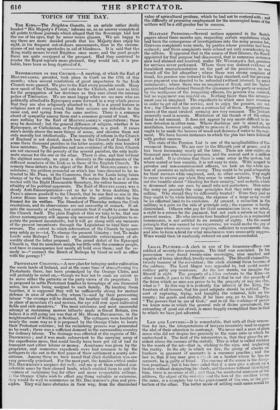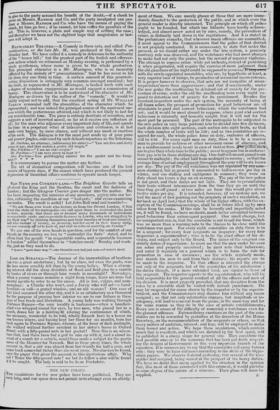LAW AND LAWYERS. —It is remarkable, that with all their venera-
tion for law, the interpretations of lawyers invariably tend to expose idol dol of their adoration to contempt. We never met a man of plain sense who did not despise law precisely in the same ratio in which he understood it. The fault of the interpreters is, that they place the ac- cident above the essence of the statute. This is what is called sticking to the words of the act—that is, sticking to the sign, and neglecting the reality. In the city in which we live, the giving of checks on bankers in payment of accounts is a common practice ; and the law is, that if any man give a cheek on a banker where he has no account, he is guilty of fraud. The essence of the crime is the decep- tion practised ; 'but it has been ruled that if a man give a check on a banker without designating his abode, and therefore without identifying him, there is no crime at all ; and thus, the accidental omission of the address, the object of the swindler and the loss of the creditor bein1.7, the same, is a complete bar to the punishment of the one, or the pro- tection of the other. The better mode of settling such cases would b to give to the party accused the benefit of the doubt,—if a check be riven on Messrs. RANSOM and Co. and the party inculpated can pro- duce a Messrs. RANSOM and Co. who have the means of paying the cheek, let him go free ; if he cannot, let him suffer the penalties of the act. This is, however, a plain and simple way of settling the case ; and therefore we have not the slightest hope that magistrates or law- yers will adopt it.



















 Previous page
Previous page